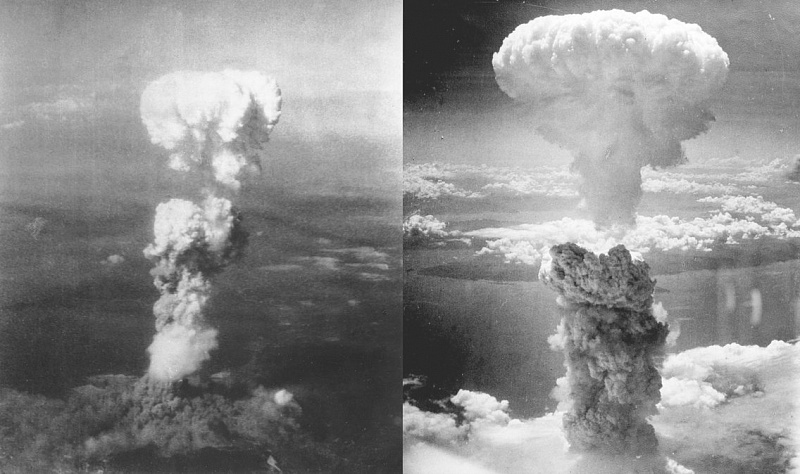Communicating science – why is it important and how to achieve it
In
Log in if you are already registered
Establishing broader public understanding, particularly of the science and diplomacy of nuclear weapons, is one of the greatest challenges facing nuclear non-proliferation. There are two main reasons that make one think this is not “his” or “her” topic.
The first reason would be that the nuclear war threat is gone forever. All concerns about that should be the worries of our grandmothers and grandfathers who have lived in the times of Cold War tensions. The contemporary age, the XXI century is the century of peace. We have finally achieved the “age of trade”, as many representatives of liberal paradigm promised us.
The second argument why people abstain from the nuclear agenda is that it is very much focused on the scientific, technical and expertise part of the subject. We are more likely to understand the importance of such topics as climate change, rise of extremism, radicalism, but still think that nuclear weapons topic is a closed-off one. And there is no surprise – this is a governmental business, not the one of the people.
There is another major point - the third reason why we stay indifferent to the topic. It is now addressed to those nations that still have neither signed nor ratified the Comprehensive Test-Ban Treaty. It is the matter of security. “How could we develop the nuclear weapons if we wouldn’t test them. It undermines the national security of the United States!” – I heard once from a U.S. Congressman over lunch in Washington D.C., when I asked him, with all the curiosity I had, why the United States Congress is still negative to such a fair treaty. It is one thing, when the opinion of the government is skeptical to the Treaty. But it is a totally different matter when it is the lack of needed education among the public, the population of a country that still is unsure whether they want to join the society of states that have already determined for themselves the nuclear weapon-free future once and forever.
And this is the time when we face the need to challenge the first two reasons why there is lack of strong and define support of CTBT in certain countries of the world. We have to solve the first two reasons to get to the third reason – and once we get there, it will be a matter of days for CTBT to be signed and ratified. For once again we will all become the witnesses of how education, openness and transparency make dramatic positive changes in the ways we think and live.
At the American Geophysical Union meeting in 2016 which I had the honor to participate in as the CTBTO Youth Group member I heard the phrase that I still remember very well and believe in. It is “We need to take science out of the laboratories, bookshelves and bring it into the public”. The true words that are clear to me once I have experienced the power of science at that meeting. It was one of the world’s largest scientific congregations. Imagine the spirit that ruled over the Moscone center over the week we were there. The brightest minds of the Earth discussing the results of their researches. And how positive was the atmosphere inside, how friendly and eager to teach, to share what they know, to educate. That’s when one realizes that scientists are not usually in the way we imagine them – grumpy, selfish, plunged into their thoughts and not happy to interact with the outsiders. Those who think like that don’t know what scientists are like. And once you approach them and ask the most primitive to your mind questions but the ones that need to be asked to give you a clear understanding of the topic – this is when you start building the bridge between the two continents. The continent of science and the continent of public. And we desperately need these bridges nowadays as once we transmit the information from the scientific world into the public we create the foundation for new discussions, new concerns, new ideas.
Once we address the scientists, and what is even better, attract the political figures to join our discussions, we find out that the threat of nuclear war is not gone anywhere and it exists for as long as nuclear weapons exist on the Earth. With all political tensions that tend to rise on the international arena we are actually getting closer and closer to such a possible outbreak. And what’s the scariest and the most shocking part of this – it happens when we expect it the least. We are to never predict when such weapon to be used. Simply because it is the weapon of shock. The weapon of paralyzing and the weapon of immediate destruction.
I belong to the generation of Millennials, born and raised in relative peace and prosperity. But even I used to see nuclear war in my sleep. These were the worst nightmares of my childhood. When I saw the scenes of alert playing, the red lights, these bombs falling on the houses of mine and those I loved. What’s special is that this nightmare is not the one from a sci-fi or fantasy movie. It is the one that can be easily played in reality. And while such a threat exists we cannot rest ourselves from the determination to take all actions to minimize the possibility of such a nightmare coming into life. And the best way to achieve this already exists. But it is up to every single person, no matter what your background is, to act strongly against the nuclear arms.
The scientists who invented the nuclear bomb later on wanted to invent a time machine and get back to the point when they could invent it just to not actually develop such a weapon. Those who developed it could not understand the horrors this weapon was to bring. But once such understanding was achieved they were strong and unite in the determination to take all possible actions to liberate our peace and our world from such a weapon. From the weapon of death. This is why we must look up to these examples to understand how important it is to develop understanding, particularly by learning from those who had direct experience of such a weapon.

Left: Atomic bombing of Hiroshima on August 6, 1945. Right: Atomic bombing of Nagasaki on August 9, 1945, taken by Charles Levy
Source: businessinsider.com
Science is no longer the area of secret developments. Science belongs to the people and the people, staying open to science, and the scientists, staying open to people, are pledged to deliver the new Enlightenment. Because this is how it happened the last time and this is how it will happen today.




